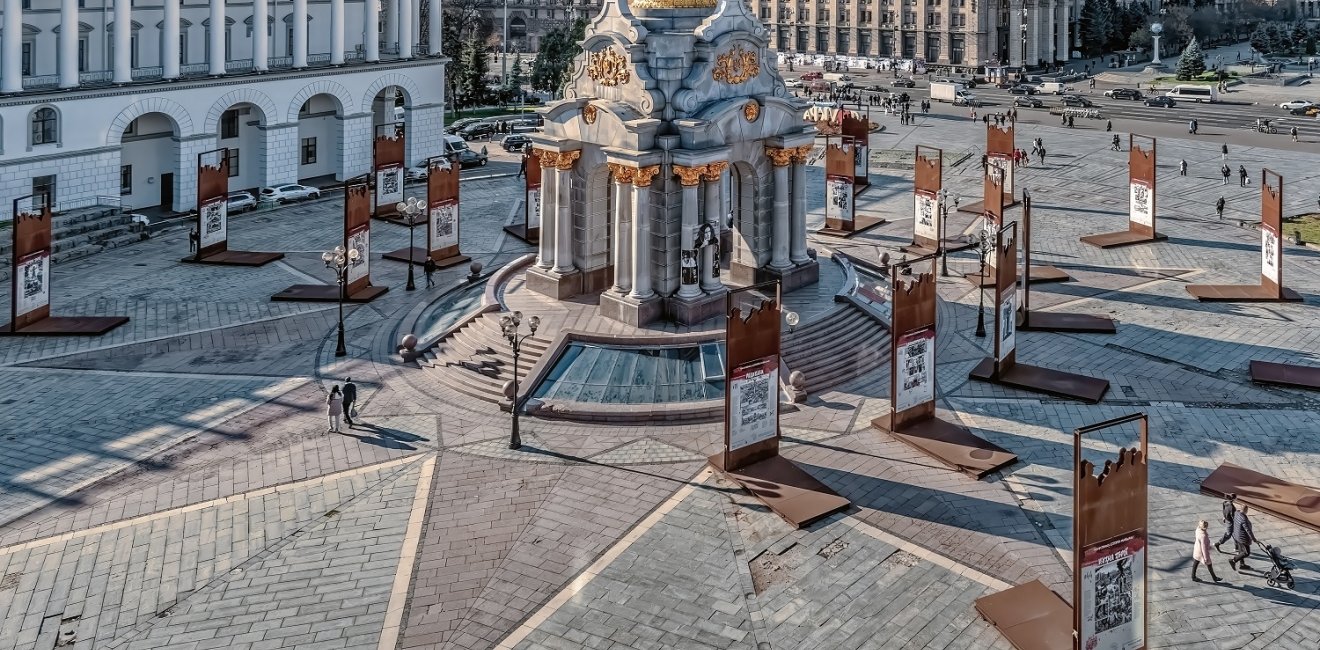
A blog of the Kennan Institute
In Ukraine’s complex political landscape, trust in political institutions is a crucial determinant of public attitudes, reforms, and governance. The nation’s changing expectations of political leaders, particularly regarding their integrity and competence, offer insights into the nation’s evolving democratic aspirations and the challenges it faces in establishing institutional legitimacy.
Trust in Political Institutions: Where Ukraine Stands
Historically, trust in political institutions in Ukraine has been fragile, shaped by corruption, political instability, and external pressures. Polling consistently shows that Ukrainians place the least trust in institutions like the Verkhovna Rada, courts, and political parties. For instance, recent surveys indicate that fewer than 20 percent of Ukrainians trust the judicial system and legislative bodies. By contrast, nongovernmental institutions, such as the military, the church, and volunteer organizations, enjoy much higher levels of public confidence.
This disparity reflects a broader societal issue: the perceived lack of integrity and transparency among political elites. The military, having earned immense respect during the ongoing Russian invasion, is seen as a symbol of national unity and sacrifice. In contrast, politicians and bureaucrats are often associated with inefficiency, corruption, and self-serving agendas.
Recent data on trust levels also reveal that Ukrainian citizens have greater confidence in certain sectors. In 2021, the most trusted institutions included the presidency and local governance bodies. A shift occurred after the 2022 invasion, with increased support for leaders who demonstrated resilience and pragmatic leadership in the face of war. In 2024, a poll indicated that the characteristics valued most by Ukrainians in a politician were integrity (60 percent), experience and competence (51 percent), intelligence and education (46 percent), incorruptibility (37percent), patriotism (36 percent), and candor (30 percent).
The Ideal Politician: Integrity and Beyond
The ideal politician in Ukraine, both before and after the war, is a figure who embodies transparency, competence, and connection to the people. In 2021, research identified such persons as Petro Poroshenko, Volodymyr Zelensky, and Yulia Tymoshenko as coming closest to the idealized image of a politician. This image combined both symbolic characteristics (such as ideology and national vision) and social attributes (such as social connections and recognition).
In 2024, however, the ideal politician has evolved. The war has forced Ukrainians to prioritize patriotism and competence above other traits. The new ideal politician is seen as someone who is not only morally upright but also strategically astute, capable of navigating the complex geopolitical challenges facing Ukraine while maintaining a strong connection to the people.
This shift reflects a growing demand for leaders who can unite the country and effectively deal with both wartime challenges and the path to postwar reconstruction. The ideal politician must be someone who can balance internal reforms with Ukraine’s continued European integration, demonstrating not just leadership but also deep ethical responsibility and strategic foresight.
The Ideal Politician, 2021 versus 2024
In 2021, the ideal politician was viewed through the lens of ideological alignment and historical symbolism. Figures like Taras Shevchenko and Vyacheslav Chornovil were emblematic of nationalistic ideals, while Angela Merkel was admired for her diplomatic experience. The perception of politicians at that time was influenced by historical legacies, with Ukrainians seeking leaders who embodied such legacy traits as freedom, integrity, and national pride.
By 2024, with the war reshaping the national psyche, the ideal politician has become more pragmatic. The war has brought a fresh focus on competence, leadership during crises, and trustworthiness. There is now a greater emphasis on leaders who can provide concrete solutions to immediate challenges, such as economic recovery, social stability, and territorial integrity. These changes are a direct response to the war, with Ukrainians now favoring politicians who demonstrate both moral clarity and effective governance.
The Impact of Reforms on the Image of the Ideal Politician
Successful and unsuccessful reforms have had a significant impact on the image of the ideal politician. For instance, the infrastructure reforms under President Zelensky, particularly the “Great Construction” initiative, were initially praised for their scope and ambition, with thousands of kilometers of roads and bridges being built across the country. However, the corruption scandals surrounding the implementation of these reforms have cast a shadow over their success. Despite the positive outcomes, such scandals have undermined public trust in the reforms and in Zelensky’s inner circle.
Policies around veterans affairs have similarly faced mixed reviews. Institutional failures, such as delays in establishing an effective veterans ministry, have hindered the reform process. Instead of throwing itself into creating robust policies and legislative changes, the administration dithered with bureaucratic reshuffling. This delay in implementing reforms negatively affected the perception of political leaders as effective problem solvers, tarnishing their image as ideal leaders who prioritized the welfare of the nation’s defenders.
On the other hand, the banking and land reforms that were successfully implemented under Zelensky have bolstered the image of leadership competence. These reforms are perceived as essential for Ukraine’s postwar recovery, making the ideal politician someone who can navigate both domestic challenges and international diplomacy while maintaining a clear vision of the future.
The Ideal Politician Ukraine Needs After the War
Looking ahead to Ukraine’s postwar future, the ideal politician must be someone who combines a deep commitment to patriotism and transparency with the competence to rebuild a war-torn nation. This politician should not only demonstrate the ability to lead during times of crisis but also embody the ethical standards and moral clarity that the Ukrainian public demands.
In conclusion, the ideal Ukrainian leader after the war must be someone who can balance historical values of integrity with practical skills in governance. By choosing leaders capable of restoring trust in political institutions, promoting successful reforms, and fostering deep connections with the people, Ukraine can build a political system up to the task of ensuring long-term peace, stability, and prosperity.
The opinions expressed in this article are those solely of the author and do not reflect the views of the Kennan Institute.
Author


Kennan Institute
The Kennan Institute is the premier US center for advanced research on Eurasia and the oldest and largest regional program at the Woodrow Wilson International Center for Scholars. The Kennan Institute is committed to improving American understanding of Russia, Ukraine, Central Asia, the South Caucasus, and the surrounding region through research and exchange. Read more

Explore More in Focus Ukraine
Browse Focus Ukraine
Talking to the Dead to Heal the Living

Ukrainian Issue in Polish Elections


